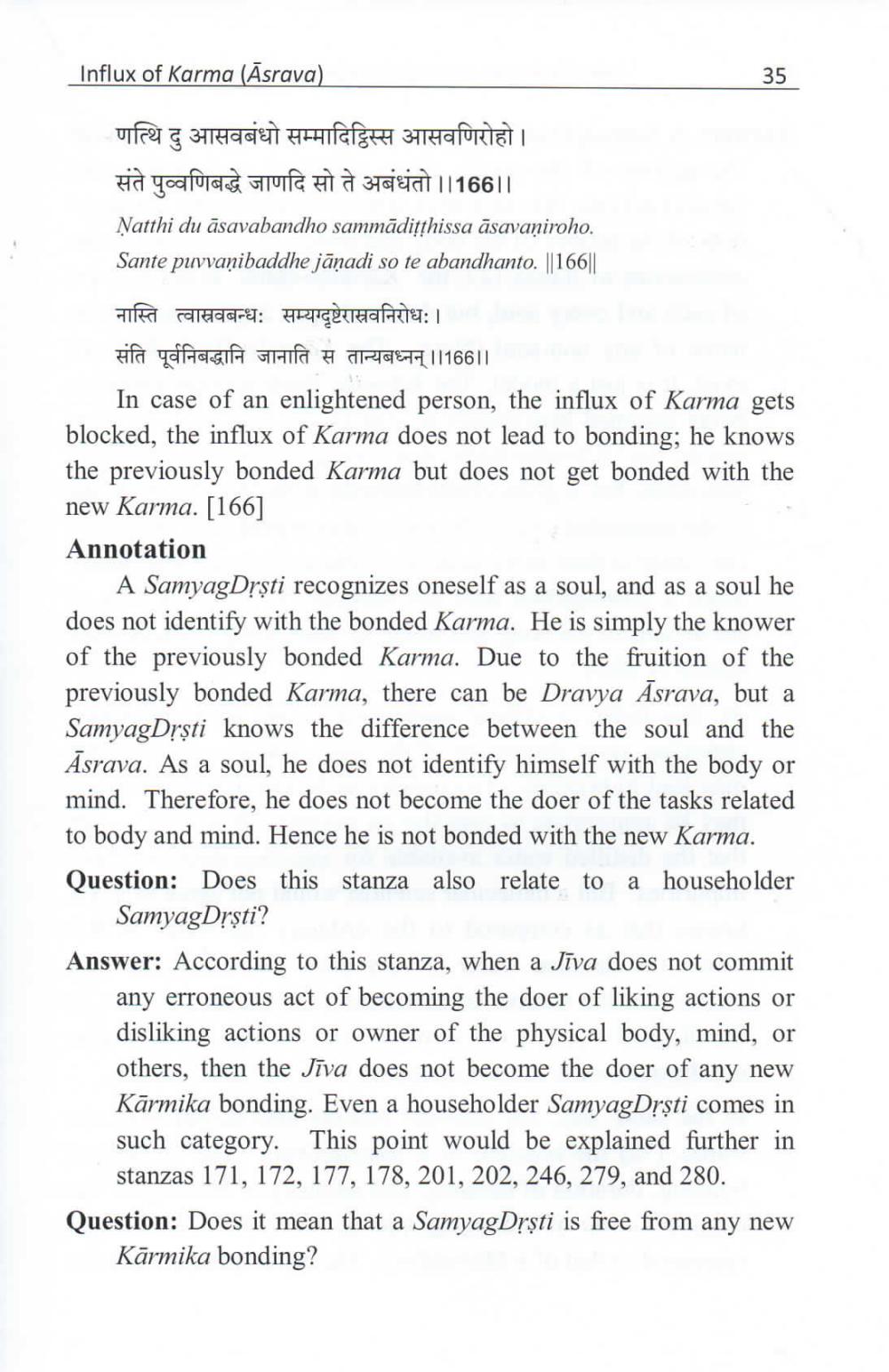________________
Influx of Karma (Asrava)
35
णत्थि दु आसवबंधो सम्मादिट्ठिस्स आसवणिरोहो। Hd Yoafutales Jig Hà | 1166|| Ņatthi du āsavabandho sammāditthissa āsavaņiroho. Sante puvvaņibaddhe jāņadi so te abandhanto. ||166||
नास्ति त्वासवबन्धः सम्यग्दृष्टेरास्रवनिरोधः।। sifa yafua sifa whifa #draeth 1116611
In case of an enlightened person, the influx of Karma gets blocked, the influx of Karma does not lead to bonding; he knows the previously bonded Karma but does not get bonded with the new Karma. [166] Annotation
A SamyagDrști recognizes oneself as a soul, and as a soul he does not identify with the bonded Karma. He is simply the knower of the previously bonded Karma. Due to the fruition of the previously bonded Karma, there can be Dravya Asrava, but a SamyagDrști knows the difference between the soul and the Asrava. As a soul, he does not identify himself with the body or mind. Therefore, he does not become the doer of the tasks related to body and mind. Hence he is not bonded with the new Karma. Question: Does this stanza also relate to a householder
Samyag Dưști? Answer: According to this stanza, when a Jīva does not commit
any erroneous act of becoming the doer of liking actions or disliking actions or owner of the physical body, mind, or others, then the Jīva does not become the doer of any new Kārmika bonding. Even a householder SamyagDrști comes in such category. This point would be explained further in
stanzas 171, 172, 177, 178, 201, 202, 246, 279, and 280. Question: Does it mean that a SamyagDrști is free from any new
Kārmika bonding?




